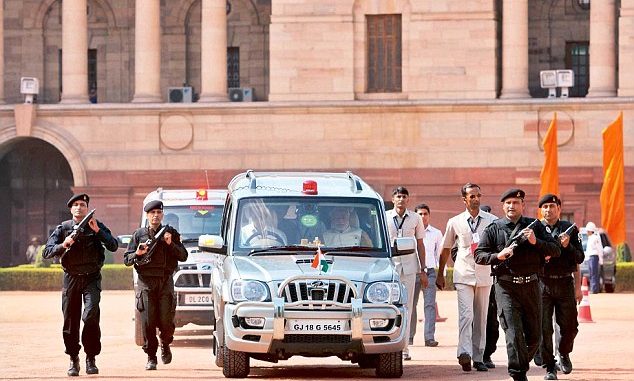
By Sanjeev Miglani
NEW DELHI (Reuters) – Beyond Thursday’s raid by Indian special forces into Pakistan’s side of divided Kashmir, New Delhi is considering new economic and diplomatic measures to bring pressure to bear on its neighbour, Indian officials said.
In a rare public acknowledgement, Indian officials said teams of elite troops crossed the de facto border dividing the nuclear-armed rivals in the Himalayan state, killing several militants it believed were planning to attack major cities.
The raids were a direct response to an attack earlier this month on an army base in Kashmir that India blamed on Pakistan-based militants.
Pakistan denied India had conducted raids on territory it administers and said it was not involved in stoking trouble in Indian-controlled Kashmir. It has demanded New Delhi produce credible evidence to back its claims.
Some Indian officials said the military was not planning further attacks or a major military offensive against Pakistan.
But they said Prime Minister Narendra Modi’s government was debating whether to use New Delhi’s rising economic and diplomatic weight to squeeze Pakistan, a country one-fifth its size and with an economy seven times smaller.
“The objective is not just to go across the border and kill 10-12 people,” said an Indian security official involved in the daily consultations since the Sept. 18 attack on an army base in the border town of Uri in which 18 Indian soldiers were killed.
“The objective is to bring about a change in Pakistani behaviour, and for that you need to move on multiple levels.
“The strategy will involve all instruments of national power. Military is only one of the options,” added the official, who asked not to be identified because of the sensitivity of the issue.
Options under consideration include choking trade with Pakistan that takes place through third countries such as the United Arab Emirates, officials said, even though it is limited and in India’s favour.
New Delhi is also considering building dams on rivers running into Pakistan and intensifying diplomatic pressure, hoping that it can show other countries how militants based in Pakistan impact the rest of the world, the officials added.
According to one of them, India could try to dissuade international companies from conducting business in Pakistan.
ON THE OFFENSIVE
The steps being considered signal a far more assertive posture by India under Modi’s nationalist administration than the previous government, but it risks further escalating tensions between the countries.
Recent Indian governments have held off launching military strikes, including when gunmen from Pakistan mounted a three-day assault on Mumbai in 2008, for fear it could invite retaliation from Pakistan that could escalate into a nuclear conflict in the worst-case scenario.
One Indian security official described the new Indian approach as moving from a “defensive posture to defensive offence”, under which India works on the vulnerabilities of Pakistan – its economy, internal security and international image as an unstable nation, home to militant Islamist groups.
“Pakistan’s vulnerability is many times higher than that of India,” the official said.
Hours after Thursday’s raid, one Indian government official said New Delhi would review its economic relationship, including trade flows, with Pakistan.
But he downplayed the possibility of India taking measures such as blocking travel between the two countries, saying the reality of policy-making was much more sober.
BLOCKING TRADE
Official trade between India and Pakistan was a modest $2.6 billion in 2014, but informal trade is estimated to be closer to $5 billion, with jewellery, textiles and machinery exported from India through third-country ports such as Dubai.
India’s informal imports from Pakistan through the same channels consist of textiles, dry fruits, spices and cement.
Indian security planners said a crackdown on such trade, in which some former members of Pakistan’s powerful military are believed to be active, would help increase the pressure.
The head of Pakistan’s Board of Investment, Miftah Ismail, said sanctions had usually not worked elsewhere in the world.
He said there was little trade between the two countries, and since much of it was in India’s favour, any restrictions would affect India more than Pakistan.
“If India does (go ahead with economic sanctions), Pakistan will somehow react, and we will further impoverish the people in both countries,” said Ismail, who is also a special assistant to the Pakistan prime minister.
“I don’t see anything good coming out of this.”
(Additional reporting by Manoj Kumar and Tommy Wilkes in NEW DELHI, Drazen Jorgic in ISLAMABAD; Editing by Mike Collett-White)

